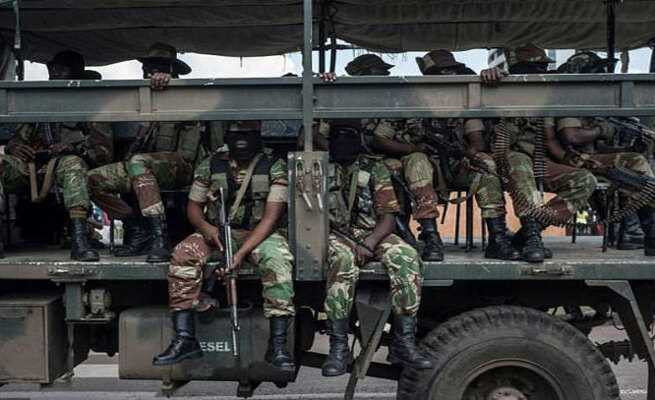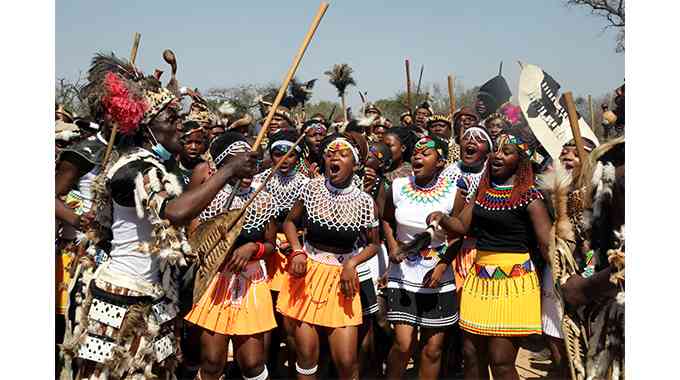
On June 27, 2025, a peace treaty was signed between the Democratic Republic of Congo (DRC) and Rwanda in Washington, DC, United States. The treaty is known as the Washington Accord.
The agreement is bent on quashing the conflict between the two countries and includes, among other provisions, respect for territorial integrity, joint security to fight off militias and economic cooperation. This accord was brokered by the US. It is the intention of this opinion article to reflect on the effectuality of this accord.
In any expenditure of effort to prevent, manage or resolve an intrastate or interstate conflict, there are peace and security structures put in place by intergovernmental bodies like the United Nations, the European Union, the African Union and sub-regional bodies like the Southern African Development Community (Sadc).
These peace and security structures were eclipsed by the Washington DC initiative. Peacebuilding efforts are not a function of ad hoc approaches. Rather, they are informed by systems of procedural, informational and interactive justice that consider all players or actors involved in a conflict.
Where the issue of actors is concerned the mediator of the DRC and Rwanda conflict did not ask the question, “Who is missing in the room?”.
This question was going to put needles in their right place. The answer to the unasked question is the M23 leadership because of its significant control over territories in eastern Congo. Mediators in conflict resolution should be as objective as a bathroom scale and should also have the faith, trust and confidence of the actors.
For Rwanda and the DRC to converge in Washington without an actor such as M23 is like selling pork to a Muslim community. Similarly, for the mediator to accommodate Rwanda and the DRC without the M23 is like asking a female mosquito to preside over a malaria management project. The M23 has been accused of being backed by Rwanda to cause turmoil in the DRC. Rwanda has on many occasions denied involvement with M23. It then does not make sense for Rwanda and the DRC to be involved in this accord without having considered M23 as a player in the whole context of the conflict.
The mediator in the Washington Accord should know peace begets stability. Furthermore, peace and stability beget development. Peace and stability cannot be sustainable when approaches to conflict prevention, management and resolution are statist in outlook. The non-involvement of a key player like M23 in the mediation process reeks of an attitude of high handedness by the state managers of the US, Rwanda and the DRC.
- In Full: Fifteenth post-cabinet press briefing, June 07, 2022
- Health talk: Mandatory wearing of masks can now be scrapped
- Ndiweni slams 2022 census outcome
- Zipra cries foul over vetting process
Keep Reading
This attitude shuts the door on the story of militias that the two nations agree to fight off to secure a sound security architecture. The story of M23 cannot be buried in the sand where Rwanda and the DRC are concerned because the history, nature, cause and motivation behind its actions must be understood for the sake of having durable peace in the DRC.
The bigger picture in the mediation of conflict is inclusiveness + political will + impartial facilitation + consensus = compromise. This panoramic picture is missing in the whole equation of the Washington Accord.
Those who mediate for peace should appreciate that peace is not just the absence of violence. In the absence of violence there may be frozen or negative peace. Frozen and negative peace gives a false perception of stability because it will have been foisted on people.
The DRC needs positive peace, and this positive peace should be a culmination of bringing all concerned parties to the table. For example, traditional leaders, civil society groups, M23, representatives of women and youths and state actors must be included.
Conflicts cannot be successfully resolved if their underlying root causes have not been understood. For example, understanding the structural causes of conflicts is the first step towards peacebuilding. In conflict prevention, management and resolution power lies in the collective and the collective are the players or actors who have grievances.
The bigger picture of peacebuilding is often missed when mediators’ mandate overlap with their own strategic interests. For example, the mediator in the DRC and Rwanda conflict has business interests in the vast mineral wealth of the DRC, hence the convergence on the understanding that Rwanda and the DRC should work in intimate cahoots to create a peaceful environment so that exploration and exploitation of mineral wealth can be done without any challenges.
Another question that has also flashed into the mind of this writer is: “Why wasn’t the proper structure of the United Nations Peace Building Commission and its affiliated Peacebuilding Support Office involved in the enforcement of lasting peace in this brouhaha under discussion?”
Another 64-million-dollar question is: “Where is the AU in all this brouhaha?”
The AU has agential capabilities to harmonise conflictual parties in Africa with suasion as compared to coercion and with facilitation as compared to prescription because it is an insider with a message as compared to external mediators that are outsiders without a message where Africa is involved. Africa needs healers, not hegemons.
Civilians in the DRC deserve better leadership. They have endured this conflict for a long time now. Their well-being, inner peace and relational harmony have been destroyed over the years by leaders who are guided by homo economicus and international and regional bodies that worry more about self-preservation as compared to respecting, protecting and fulfilling the rights of the citizens of the DRC.
Nicholas is an Inclusion and Development specialist, writing in own capacity.






